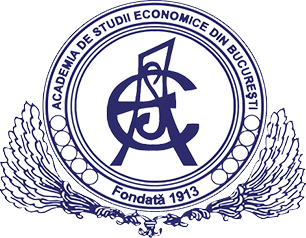Bucharest University of Economic Studies (ASE) is one of Romania’s most prestigious academic institutions, recognized for its academic excellence and contributions to the fields of economics, finance, and business. With a rich history spanning over a century, ASE offers a diverse range of programs and has continuously adapted to meet the evolving needs of both national and international students.
History
Founded in 1913 as the Academy of High Commercial and Industrial Studies through Royal Decree, ASE has built a legacy of over 110 years of academic achievement. ASE has consistently remained at the forefront of higher education in Romania, producing generations of skilled professionals who have contributed to shaping the country’s economic landscape.
- 1948: Establishment of the Finance and Credit Faculty.
- 1970: Launch of the Agriculture Economy Faculty.
- 1993: The Finance and Credit Faculty has been renamed into The Finance and Banking Faculty.
- 2003: Agriculture Economy Faculty has been replaced Agrifood and Enviromental Economics Faculty.
- 2020: The founding of the Faculty of Law, expanding ASE’s academic offerings.
- 2023: Celebrated 110 years of academic excellence.
Structure
ASE encompasses a wide array of facilities to enhance the learning environment:
- Canteens
- Student dormitories.
- Sport clubs and student associations.
- Research centers.
- Publication and printing house.
- Doctoral schools.
- Centers for the continuous training across the country
- Well-rounded alumni network.
Why choose ASE?
ASE remains a leader in economic education, dedicated to providing students with the tools they need to succeed in an ever-evolving global economy. Whether you are pursuing a career in finance, business, or economics, ASE offers an exceptional environment for academic growth and professional development.
- Diverse academic community due to the international reputation.
- Tuition scholarships and other aids to ensure equal opportunities for success.
- Strong partnerships with the business sector, preparing graduates for leadership roles in top organizations.
Faculty of Finance and Banking
The faculty has two deparments, the doctoral school of finance, post-university studies. The decisions are made the Faculty Council that is made out of 9 professors, 8 associate professor, 1 lector and 7 students.
- Boitan Iustina-Alina (Prof. dr.)
- Brad Laura (Lector. dr.)
- Brasoveanu Mihaela-Laura (Prof. dr.)
- Campeanu Emilia-Mioara (Prof. dr.)
- Ciobanu Radu (Conf. dr.)
- Dedu Silvia-Cristina (Conf. dr.)
- Dragota Victor (Prof. dr.)
- Dumitrescu Bogdan-Andrei (Conf. dr.)
- Georgescu Georgiana-Camelia (Prof. dr.)
- Iacob Mihaela (Conf. dr.)
- Necula Ciprian (Prof. dr.)
- Stan Mirela (Conf. dr.)
- Stoian Andreea-Maria (Prof. dr.)
- Trasca Daniela-Livia (Prof. dr.)
- Tatu Lucian (Conf. dr.)
- Vintila Nicoleta (Conf. dr.)
- Bogdanescu Sorina-Elisabeta (Student)
- Boldescu Mihaela (Student)
- Dinu Alexandra-Ionela (Student)
- Dragut Bogdan-George (Student)
- Eftimie Maria-Mihaela (Student)
- Giubalca Baicu-Gheorghe (Student)
- Naum Ana-Maria (Student)
Master of Applied Finance
The Master of Applied Finance at the Bucharest University of Economic studies was created in 2015. It meets the need for training at a higher level as the local and international labour market requires a significant number of graduates with training in the field of finance.
Applied Finance is one of the eight master programs at the Faculty of Finance and Banking. At our faculty, there are 450 master places.
The main fields are:
- Expert in investment activities management (241262)
- Expert in the development and evaluation of investment purchase documentation (COR 241261)
- Consultant in the financial and investment field (COR 2415)
- Advisor/ expert/ inspector/ referent/ economist in economic management (COR 263106)
Grading system
The universities is based on the Bologna system with three programmes: Bachelor (3 years), Master (2 years), Doctoral School (4 years).
The academic year has two semesters. The first semester starts at the beginning of October and is completed mid-February. The second semester runs from late February to late June. The two regular examination periods are at end of January – beginning of February and end of May – mid June. The re-examination session takes place in the second half of June – beginning of July.
- 10 = Excellent = A
- 9 = Very good = A-
- 8 = Good = B
- 7 = Satisfactory = C
- 6 = Satisfactory = C
- 5 = Sufficient = D
- 4, 3, 2, 1 = Insufficient = F
One discipline will be divided into courses and seminars. The mark that you get in seminars represents a percentage out of the final mark, while the mark from courses (usually with an exam) will represent the rest of the final mark’s percentage. The split differs among courses and will be presented the professor at the beginning of the semester.
Each semester’s courses comprise a maximum of 30 ECTS. In order to pass the first year of studies, you need a minimum of 30 ECTS. You need the full amount of credits in order to enroll for the thesis.
